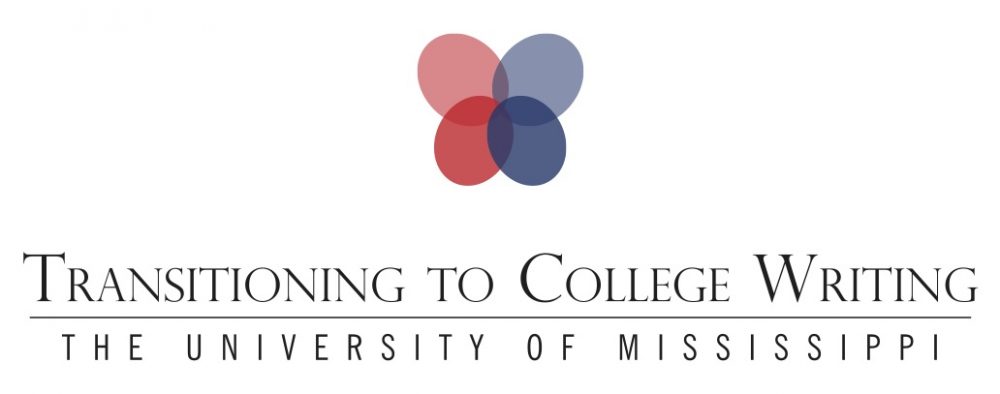“All that you touch,
You Change.
All that you Change
Changes you.
The only lasting truth
Is Change.”
–Lauren Oya Olamina, Parable of the Sower by Octavia E. Butler
One of my favorite pieces of literature is Parable of the Sower by the late Octavia E. Butler. This is partially due my status as a self-proclaimed sci-fi geek, but it is also because I think anyone with open eyes, an open mind, and an open heart can learn extensively from its core themes regarding social change and accountability. While Butler does not frame it as such, the text centers on the question of what it means to be of the world, in the present, in a way that inspires change.
Even before I had a notion of making civic responsibility central in composition curriculum and pedagogy, I loved the ideas that Butler encouraged me to ponder about each of our places within the network of human relationships we create. My workshop at the Transitioning to College Writing Symposium situates this idea about responsibility to each other and to our communities within the context of learning about writing in the introductory college-level course. As I have overall theorized it, a first-year writing pedagogy with civic responsibility promotes writing as a civic act. The rhetorical practices valued in academic writing and discourses are used in conjunction with other rhetorical discourses to initiate productive social action.
I first became interested in writing pedagogy evolving around civic responsibility as I thought about potential alternatives to the early college high school (ECHS) model of concurrent enrollment education. Similar to middle colleges, ECHSs are most frequently targeted to urban, low-income, underrepresented, and, sometimes, second-language learner populations. The goal is to increase their access to college and, therefore, all of the social and economic merits that come with a higher education, according to popular social belief. Unlike Advanced Placement or International Baccalaureate, “Early College Designs are based on the bold idea that academic rigor, combined with the opportunity to save time and money toward a postsecondary credential, are powerful motivators for students to work hard and meet intellectual challenges” (Jobs for the Future). The model is based on access through less money and less time. While a decent attempt at creating equitable resources for all individuals who want it to attain a college education, I agree with Barbara Schneider that the ECHS Initiative “show[s]… subscription to meritocratic beliefs.”[1] A focus on reduced cost and accelerated time loses focus of what keeps many members of the targeted populations not from college access, but from college success.
the social and economic merits that come with a higher education, according to popular social belief. Unlike Advanced Placement or International Baccalaureate, “Early College Designs are based on the bold idea that academic rigor, combined with the opportunity to save time and money toward a postsecondary credential, are powerful motivators for students to work hard and meet intellectual challenges” (Jobs for the Future). The model is based on access through less money and less time. While a decent attempt at creating equitable resources for all individuals who want it to attain a college education, I agree with Barbara Schneider that the ECHS Initiative “show[s]… subscription to meritocratic beliefs.”[1] A focus on reduced cost and accelerated time loses focus of what keeps many members of the targeted populations not from college access, but from college success.
If, as teachers of writing, we stop our focus on issues of access, we cannot expect the more struggling members of our classroom communities to understand the mechanisms of academic writing. Just as critical, we fail to support them in acquiring any writing practices they must learn as contributory members in professional, academic, and civic spaces.[2] Like the adolescent protagonist in Parable of the Sower demonstrates, writing is a powerful tool of igniting change. And like the protagonist, the members of our classrooms may think they are “not good enough as a writer or poet of whatever it is [they] need to be” in order to “put things down in ways that are as powerful, as simple, and as direct as [they] feel them.”[3]
The use of civic responsibility in composition course pedagogy, as I propose, requires accountability on the part of instructors, students, and the curriculum. I see a writing pedagogy civic responsibility as a heuristic. It is a learning aid toward understanding the multiple civic functions of writing and rhetoric. My workshop will interrogate these functions and consider why I think they are central to helping students transition into college writing, as part of an ever-changing ecology of civic acts of writing.
Jamila Kareem, Assistant Director of the Virtual Writing Center, University of Louisville
[1] Schneider Barbara. “Early College High Schools: Double Time.” College Credit for Writing in High School: The “Taking Care of” Business. Eds. Kristine Hansen and Christine R. Farris. Urbana: NCTE, 2010.
[2] Kells, Michelle Hall. “Writing Across Communities: Diversity, Deliberation, and the Discursive Possibilities of WAC.” Writing and Community Engagement: A Critical Sourcebook. Eds. Thomas Deans and Barbara Roswell and Adrian J. Wurr. Boston: Bedford/St. Martin’s, 2010.
[3] Butler, Octavia E. Parable of the Sower. New York: Warner Books, 1993.









